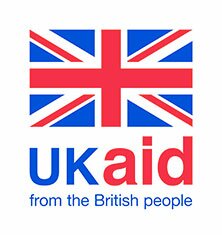Resource centre
The effect of COVID-19 and government response measures on poor and vulnerable groups in urban areas in Ethiopia – report four
This research report is the fourth in a series of six rounds of research, looking at the effects of COVID-19 on the poor and vulnerable urban households in Ethiopia. The report assesses the governments ongoing response to the pandemic as well as changes in household food security, livelihoods, education and access and use of health services and, explores how attitudes and behaviour towards the pandemic have changed. The results so far indicate that there have been varied impacts throughout the research sample, which to an extent are related to structural inequalities. The first three reports are available here.
Authored by Donna Harris, Biniyam Tadesse, Israel Mitiku, Mekdes Demissie, Alula Teklu, Girmay Medhin, and Frehiwot Belachew.
Towards shock-responsive social protection: lessons from the COVID-19 response in Pakistan
The stringent lockdown measures and global economic slowdown, due to COVID-19, are likely to increase the poverty rate in Pakistan by 35 percentage points in urban areas and 32 percentage points in rural areas. The report documents the Government of Pakistan’s social protection response to mitigate the impact of COVID-19 on vulnerable populations. It also analyses the factors that enabled and constrained the effectiveness of the response, at the policy and operational levels. The report finds that the response achieved impressive coverage in a timely and effective manner, enabled by government ownership and coordination. At the same time, the response’s impact on poverty is estimated to be marginal due to an inadequate benefit value driven by financing constraints. Finally, the report also provides an assessment of the response in terms of comprehensiveness and gender and social inclusion considerations.
Towards shock-responsive social protection: lessons from the COVID-19 response in Uganda
The stringent lockdown measures and global economic slowdown, due to COVID-19, are likely to have a large impact on poverty in Uganda. This report documents how the Government of Uganda plans to implement an Urban Cash for Work Programme to mitigate the impact of the pandemic on vulnerable populations. This report analyses the factors that enabled and constrained the effectiveness of the response, at the policy and operational levels, and finds that a timely response was undermined by several factors including the need to negotiate new financing and design a new labour-intensive public works programme, targeting urban populations. Finally, the report provides an assessment of the response in terms of coverage, adequacy, comprehensiveness, timeliness, and gender and social inclusion considerations.
Towards shock-responsive social protection: lessons from the COVID-19 response in Kenya
This study documents the Government of Kenya’s social protection response to mitigate the negative impact of the pandemic on vulnerable households and presents an analysis of the factors that enabled and constrained the effectiveness of the response, at the policy and operational levels. We find that the Government of Kenya was able to achieve impressive coverage through various social protection interventions but that a coherent response was undermined by a weak coordination mechanism, poor functionality of the Single Registry and the need to target new populations, not typically covered by routine social protection programmes.






